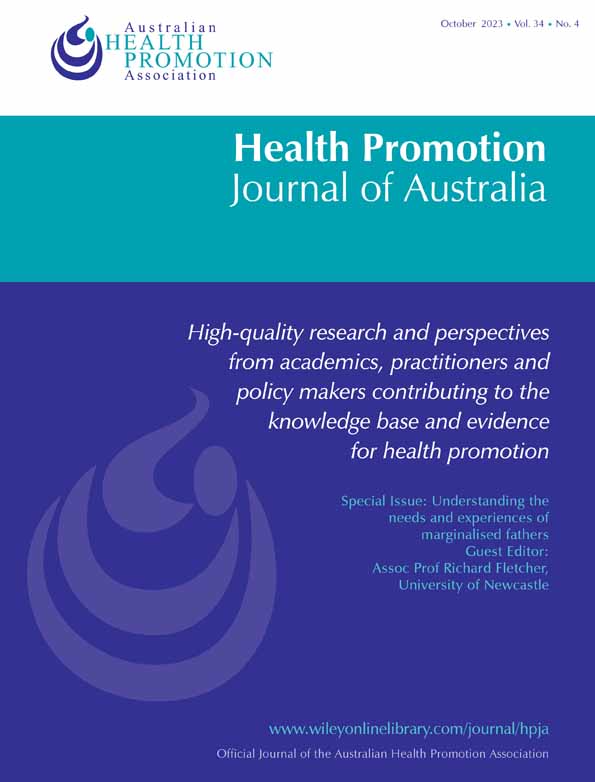Promoting social inclusion among asylum seekers and refugees living in the south east region of Melbourne, Australia, through volunteering
Abstract
Issue addressed
This article describes the Refugee Health Volunteer Program; a Monash Health initiative that aimed to promote social inclusion among asylum seekers and refugees within the south-eastern region of Melbourne, Australia. This article also presents the evaluation findings of this strategy.
Methods
This mixed-methods evaluation aimed to determine the impact of the Volunteer Program at both an individual and organisational level. Volunteers completed a survey (n = 39) and participated in interviews (n = 14), and staff working alongside volunteers at Monash Health Community completed a survey (n = 82).
Results
Volunteers attributed a range personal benefits to their involvement in the Refugee Health Volunteer Program; reporting improvements across all survey domains, including “Personal development,” “Skill development,” “Health and wellbeing,” “Sense of trust and inclusion,” “Social development.” Further, within the interviews participants discussed that through volunteering they had made friends, developed new skills and felt their emotional wellbeing had improved. Staff members (n = 82) working at Monash Health Community also reflected positively on the program, reporting that volunteers increased organisational capacity and enhanced their personal understanding of asylum seeker and refugee issues.
Conclusions
This program has successfully responded to an emerging need within the local asylum seeker and refugee community. Applying a social determinants framework acknowledges the fundamental impact of social connectivity on wellbeing.
So what?
Many of the factors that adversely impact the wellbeing of asylum seekers and refugees sit beyond both individual and organisational control. However, this article defines an effective volunteering model that fosters social inclusion and promotes emotional wellbeing among humanitarian arrivals in Australia, within the confines of the existing context.
CONFLICT OF INTEREST
The authors declare no conflict of interest.




